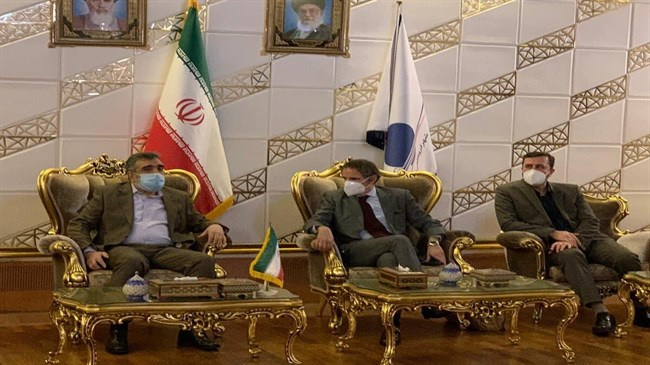IAEA chief arrives in Tehran

The IAEA chief was welcomed by spokesman of the Atomic Energy Organization of Iran (AEOI) Behrouz Kamalvandi and Iran’s Representative to IAEA Kazem Gharibabadi, IRNA reported.
This is the second visit of Grossi to Iran since taking office as IAEA chief. The visit comes amid a countdown to the deadline set by Iran slated for February 23 to end the voluntary implementation of Additional Protocol (AP).
In early September, Grossi had his first visit to Tehran at the invitation of senior Iranian officials and in line with continuing Iran's cooperation and commitments as a member of this international body.
On Friday, Grossi tweeted, “Tomorrow I travel to Tehran to meet with senior Iranian officials to find a mutually agreeable solution, compatible with Iranian law, so that the @IAEAorg can continue essential verification activities in Iran. Looking forward to success – this is in everybody’s interest.”
The visit was requested by Grossi for technical talks with the Atomic Energy Organization of Iran on how to implement the provisions of Iran’s February 15 letter to the IAEA and Article 6 of the ‘Strategic Action Plan’ of the Iranian Parliament and how to continue bilateral cooperation in light of the new arrangements and developments, Kazem Gharibabadi, Iran's ambassador to the Vienna-based international organizations said on Wednesday.
In December 2020, Iranian lawmakers overwhelmingly voted in favor of the 'Strategic Action Plan to Lift Sanctions and Safeguard Interests of Iranian People', which intends to further accelerate the development of the country’s nuclear program and counteract unilateral sanctions imposed on the country by the US.
The law, among other things, has required the Iranian administration to stop allowing inspections beyond the Safeguards Agreement, including the voluntary implementation of the Additional Protocol, unless there is an easing of US sanctions.
Iran’s countermeasures, which were taken one year after its full compliance despite sanctions and mounting economic pressure, conform to Articles 26 and 36 of the JCPOA, which enshrine Tehran’s legal rights in case of noncompliance on the part of other signatories.
Source: Iran Daily

